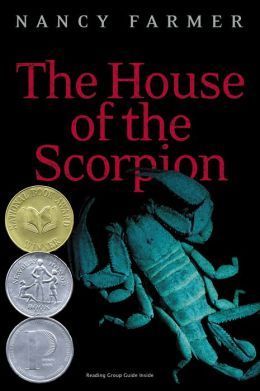TL;DR
The House of the Scorpion by Nancy Farmer follows the story of Matt, a clone struggling for identity and freedom in a world that sees him as less than human. It explores themes of friendship, survival, and ethics surrounding cloning.
What is The House of the Scorpion about
The House of the Scorpion tells the gripping story of Matteo Alacrán, a clone created from the DNA of El Patrón, a powerful drug lord in a dystopian land known as Opium. Raised in isolation and regarded as a beast by most, Matt grapples with his identity and humanity, striving to break free from the shackles of his existence as mere property. The novel intertwines elements of fantasy and moral dilemmas concerning cloning, survival, and the quest for personal identity, making it a poignant coming-of-age tale for young readers. Farmer’s writing tackles complex issues that resonate with themes of friendship, love, and the fight against dehumanization.
The House of the Scorpion 7 Key Takeaways
Matt's Origin
Matteo Alacrán, known as Matt, is born as a clone from El Patrón's DNA, raised in a chicken coop, and treated as an animal by society.
Matt's Awakening
As Matt grows, he begins to realize his humanity and struggles to navigate a world that views him as inferior.
Conflict with El Patrón
Matt's relationship with El Patrón is complex; while El Patrón loves him as a reflection of himself, Matt longs for freedom.
Journey to Freedom
Matt embarks on a journey to discover his identity and fight for his right to exist as a free individual.
Confronting the Truth
Matt learns the dark truths about his purpose as a clone and the ethics surrounding human cloning.
Rebellion and Survival
The climax reveals Matt's determination to escape the life laid out for him and assert his existence beyond being a clone.
Resolution and Hope
Ultimately, Matt's story concludes with hope as he claims his identity and future, transcending his origins.
Top The House of the Scorpion Quotes
- "I am not an animal, I am a human being!"
- "You were harvested, but you can still grow to be something more than what you were designed for."
- "Freedom is a fragile thing, worth fighting for every day."
Who should read The House of the Scorpion?
This book is ideal for young adults and middle school readers, particularly those who enjoy fantasy and science fiction. It provides insight into themes of identity and ethics while engaging readers in a thrilling narrative that promotes empathy and understanding.
The House of the Scorpion Best Reviews
- Nancy Farmer's The House of the Scorpion offers a profound exploration of identity and humanity through the eyes of a courageous young clone, making it an essential read for young adult literature.
- A gripping tale rich with moral dilemmas, The House of the Scorpion serves as a stark reminder of the ethical implications of cloning and our responsibilities towards one another.
- With its intricate world-building and touching character development, Nancy Farmer's novel is a striking blend of fantasy and reality, encouraging readers to reflect on what it means to be human.
People also liked these summaries
The House of the Scorpion FAQs
What age group is The House of the Scorpion suitable for?
The House of the Scorpion is appropriate for readers aged 12 and up, commonly recommended for middle school students.
Is there a sequel to The House of the Scorpion?
Yes, the sequel is titled The Lord of Opium, continuing Matt's story and the challenges he faces in his pursuit of freedom.
What are the main themes of The House of the Scorpion?
Key themes include the struggle for identity, the ethical implications of cloning, and the importance of friendship and loyalty in overcoming adversity.
